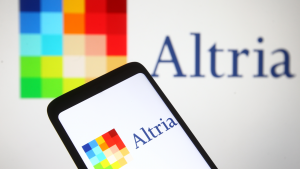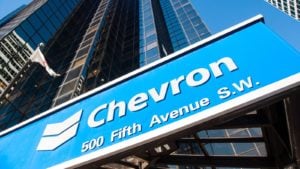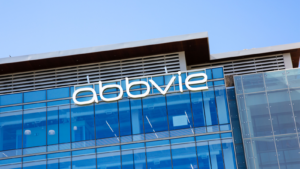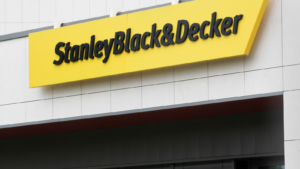Over the last three months inflation has clocked in at 3.1%, 3.2%, and 3.5% most recently in March. Fortunately, several of the dividend aristocrats include yields that effectively negate current inflation rates.
That’s the point of this article. All of the Dividend Aristocrats are expected to outpace inflation through overall growth. However, those discussed below outpace or negate inflation through their dividends alone.
Combine that truth with their steady, strong nature and it’s easy to see why investors often prefer the stock grouping. 25 plus consecutive years of dividend increases and growth throughout that period is a potent combination. Let’s take a look at those companies and what they offer investors.
Dividend Aristocrat Stocks: Altria (MO)

Altria (NYSE:MO) is arguably the most at risk of the Dividend Aristocrat stocks discussed here. The reason is very simple: Altria includes a 9% dividend and operates within the waning tobacco industry.
Generally speaking, a 9% dividend is unsustainable and would normally be subject to cuts at any moment. Nevertheless, Altria looks very sustainable based on its dividend. Investors should expect the company to continue paying it for at least a few years.
Altria’s payout ratio is 0.78. That means 78% of earnings dividend payments. It is a somewhat high but still manageable percentage. Recent moves suggest the company is in little danger. Altria recently sold 18% of its stake in Anheuser-Busch Inbev (NYSE:BUD) allowing it to boost its repurchase plan.
Altria will increase its buyback plan from a total of $1 billion to $2.4 billion. That’s important because it will allow the company to spend less on dividend payments as it retires more stock. In turn, that will lower the payout ratio to a degree making MO shares that much more attractive. The company will continue to grapple with the new tobacco landscape over the coming years. its success there will dictate its longer term trajectory. For the moment, the company is strong and includes a very high yield dividend.
Archer Daniels Midland (ADM)

Investors who’ve been following Archer Daniels Midland (NYSE:ADM) know that there is good news and bad news surrounding the company. That news has negatively affected its stock. It also sets up a rebound situation that’s worth exploring.
That potential rebound situation is the good news for Archer Daniels Midland. The bad news is that the company continues to deal with the fallout from an investigation into accounting practices in its nutrition business. The good news is that its dividend does outpace inflation at 3.25% and that the repercussions of that investigation will likely be limited.
The reason to believe so is that the company is cooperating with The SEC and the Justice Department. It has had to restate 6 years of profits from within its nutrition business. The company is essentially admitting a fault and has placed its CEO on leave. The likely outcome is penalties.
That sets up a situation in which ADM shares can rebound as the company moves past this current negative stage.
Dividend Aristocrat Stocks: Kimberly-Clark (KMB)

Kimberly-Clark (NYSE:KMB) is a solid, strongly performing company at the moment. That’s probably the best reason to consider buying it right now. The fact that it also includes a dividend yielding 3.5% is arguably the icing on the cake.
First quarter earnings and revenues were better than expected from Kimberly-Clark. The $5.15 billion of revenues the company reported were 1.16% better than anticipated. Earnings of $2.01 were much better than the $1.63 Wall Street had been expecting.
The strong report has allowed the company to lift its annual forecast. It continues to see steady demand for its higher priced personal care products. It seems that inflation has done little to slow demand, at least as it relates to Kimberly-Clark.
Although inflation remains elevated, coming in at 3.5% in march, the company appears to be well insulated. KMB shares also include a 3.5% dividend which is another reason to consider buying.
Chevron (CVX)

Chevron (NYSE:CVX) stock is very interestingly positioned at the moment due to multiple factors.
Inflation remains elevated. Generally speaking, that’s a net negative for oil producers. The higher inflation rises the more likely an economic slowdown becomes. In turn, that slowing economy consumes less oil, driving demand and prices lower.
However, there’s an ongoing conflict in the Middle East that balances out the current threat of persistent inflation as it relates to oil prices. That continues to make Chevron stock highly intriguing. The inflation slows the economy thus the oil demand argument doesn’t exactly hold here. CVX shares also include a dividend yielding approximately 4%. That strengthens the argument for investing even as inflation remains above 3%.
2024 has already proven the strength of the energy sector. Oil stocks in particular have performed very well. They’ve outpaced the S&P 500 so far. The energy sector is one of the best to consider at this point. It, along with artificial intelligence (AI), are going to continue commanding headline space for the time being. Chevron is a strong choice for those reasons and more.
Dividend Aristocrat Stocks: AbbVie (ABBV)

AbbVie (NYSE:ABBV) stock is moving again toward a period of strength after a period of significant instability. That instability was primarily due to Humira coming off patent and repercussions related thereto.
AbbVie has managed to navigate that period well. It has emerged successful on the other side. Humira anchored the company’s Immunology portfolio. The company has long prepared for its eventual decline. Successor drugs including Rinvoq and Skyrizi now appear prepared to fill the void. The company continues to increase its forecast for their future revenue potential.
In my mind it points to brighter days ahead for the company. One particular concern surrounding AbbVie is that asset growth outpaced revenue growth over the past five years. The company has been in acquisition mode in order to find new sources of revenue to replace Humira’s decline. Now that things are improving, the company should improve in that regard. The company is more secure and has overcome the Humira hurdle which will allow it to focus on improving efficiency rather than finding new revenue sources. It’s 3.7% dividend makes it an inflation beater to boot.
Stanley Black & Decker (SWK)

Investors should buy Stanley Black & Decker (NYSE:SWK) stock at the moment because it will help them beat inflation. They should hold it because it has massive potential to appreciate in price.
The 3.6% dividend the company pays outpaces current inflation. That dividend payment is secure based on a free cash flow payout ratio of 56%. Investors should essentially feel secure despite the fact that the company did suffer an earnings loss in 2023.
Mortgages remain high which is stunting demand for the tools that the company sells. Share prices have basically declined by 50% since late 2022. However, there will be a rebound and Stanley Black & Decker will continue to pay a dividend in the meantime. Its FCF payout ratio is a strong indicator of that notion.
Shares are essentially deeply discounted at present due to housing market issues. Absent a complete collapse, Stanley Black & Decker will continue to represent a strong rebound play currently beating inflation through its dividend.
Coca-Cola (KO)

Coca-Cola (NYSE:KO) is well known to be a company that thrives throughout the various stages of market cyclicality. Even the most bearish investors agree, Coca-Cola stock is a strong choice in the worst of times.
Thus, investors who are currently worried about inflation reigniting economic concerns should consider KO shares. Those shares include a dividend yielding 3.2%, roughly negating the current effects of inflation.
The other truth is that Coca-Cola is primarily a set-it-and-forget-it type of investment. Over the last 15 years it has essentially tripled in price. It has also steadily improved over that time frame with the exception of the pandemic onset. Anyway, very few investors would have bought KO shares at the moment it fell off a cliff. Even so, those who did, are up today.
Coca-Cola is a well-known defensive stock. Investors who are worried are leaning defensive right now, making KO shares attractive for that reason. In short, there are multiple narratives favoring investment in KO outside of its ability to outpace inflation through its dividend.
On the date of publication, Alex Sirois did not have (either directly or indirectly) any positions in the securities mentioned in this article. The opinions expressed in this article are those of the writer, subject to the InvestorPlace.com Publishing Guidelines.
Alex Sirois is a freelance contributor to InvestorPlace whose personal stock investing style is focused on long-term, buy-and-hold, wealth-building stock picks. Having worked in several industries from e-commerce to translation to education and utilizing his MBA from George Washington University, he brings a diverse set of skills through which he filters his writing.
